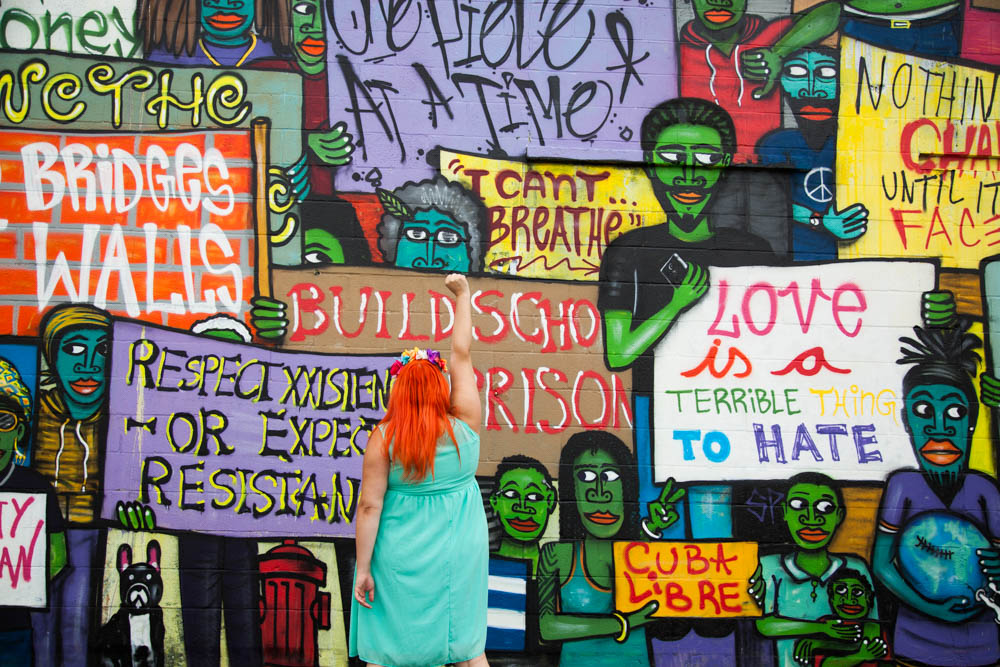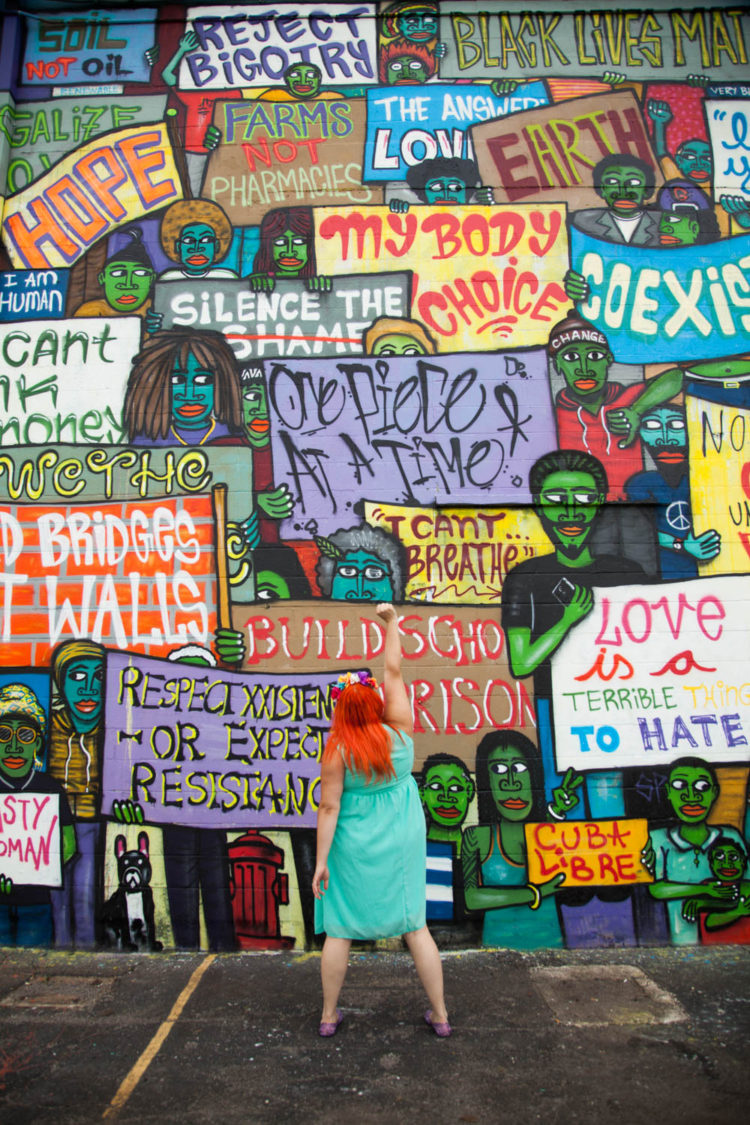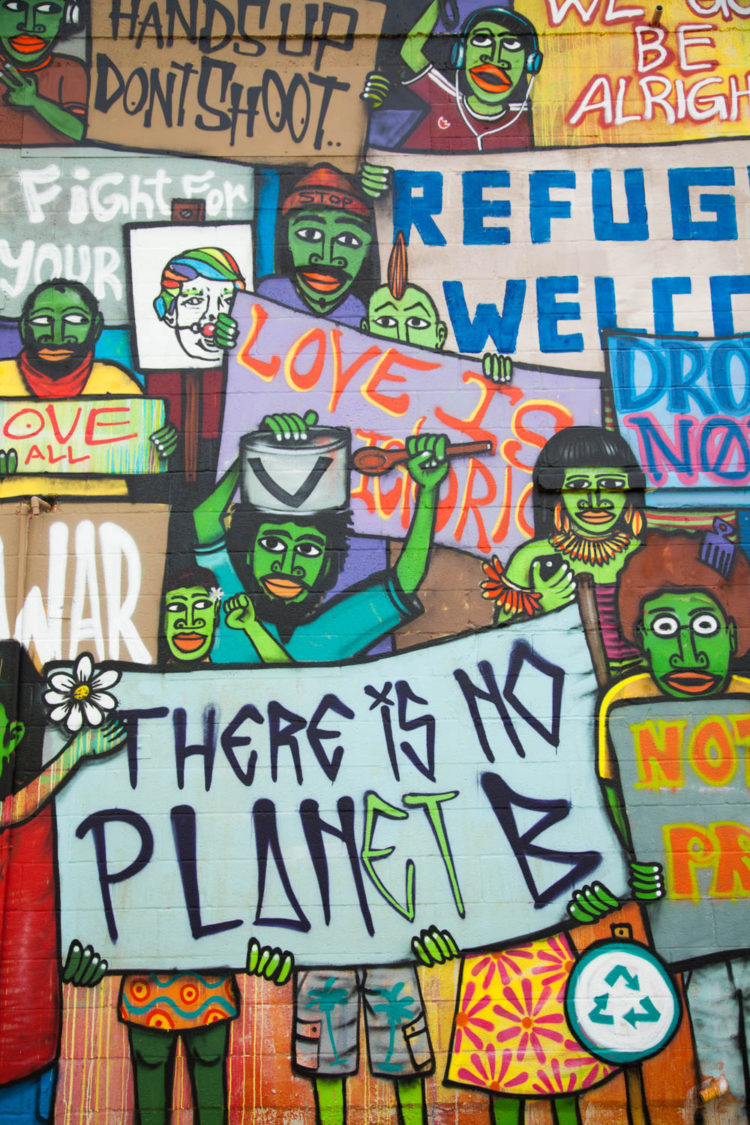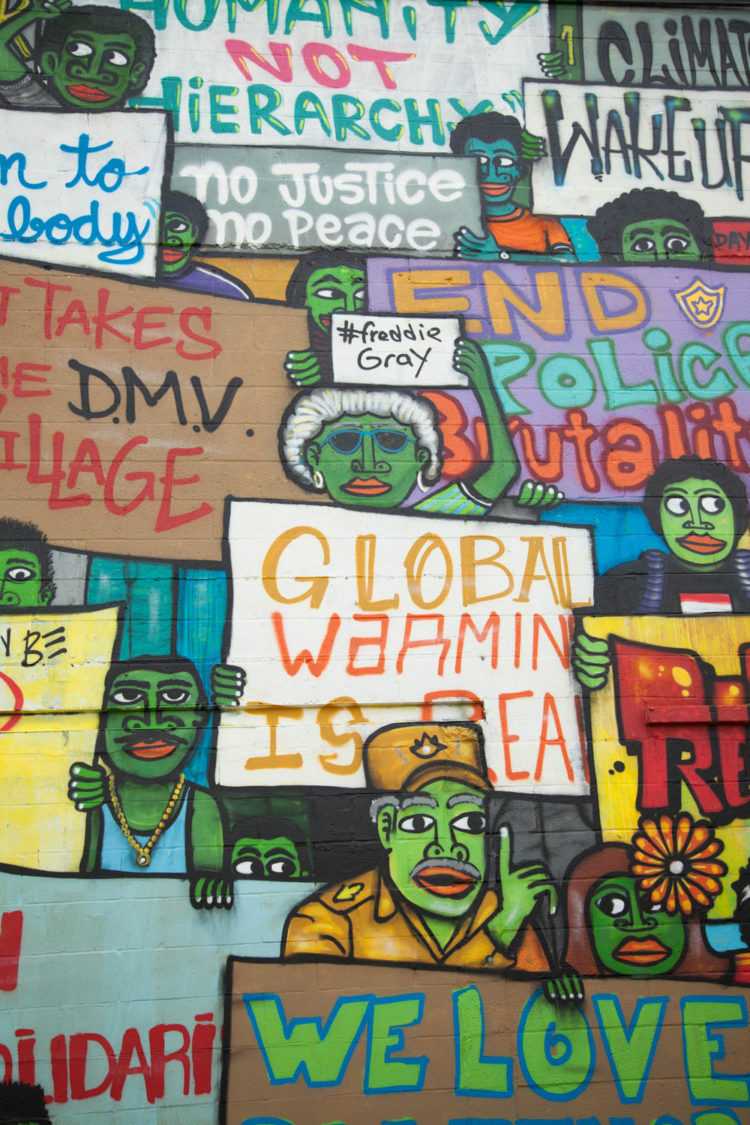When I published my Activism Resources post that I hope will continue to grow and grow, the most requested topic was how to be an activist when you struggle with anxiety. This also applies to being introverted, having a chronic illness or pain, agoraphobia, claustrophobia, or anything else that might prevent you from “hitting the streets”. I thought that was a really important topic worth tackling, so let’s do this! (PS – Don’t let the title of the article fool you… these are all real ways to be an activist. I just rewrote the title a dozen times and couldn’t figure out what to call it.)
So first of all, being an introvert and having an anxiety disorder are obviously two very different things and I’m not pretended that they’re the same. Introversion is simply part of a spectrum of where you get your energy, and that usually means you charge up by being alone instead of from social interactions like extroverts do. Having an anxiety disorder is a mental illness. Mental illnesses are not ranked, so it’s just the same as having Bipolar Disorder or Schizophrenia. I have a couple of disorders that fall under the anxiety umbrella of mental illness, one of which is Panic Disorder, so I definitely understand where people are coming from on this side of the conversation.
Regardless of why you’re reading this article, the end game is most likely that activism historically lends itself to being a very social activity. Protesting brings to mind mobs of people shoved together holding up signs, shouting, with no apparent exits. If you have an adverse reaction to being around large groups of people, but still want to be active in political protests, what are you supposed to do? That’s what I’m going to talk about today.
So first of all, yes, we do need people out there on the streets with signs. But there will always be extroverts like me who can’t wait to get out there! And we understand that it isn’t everyone’s cup of tea. We also understand that your absence doesn’t mean you aren’t serious about the issues you support. If you’re an extrovert who has no problem with protesting in person and aren’t doing it because you’re lazy, that’s a different story. But if you’re going to have a panic attack from attending a protest, that’s no different than not being able to attend a march because you have a broken leg. It’s okay.
Also, if anyone ever tells you that you’re not a “real” activist because you didn’t attend a march, you can promptly tell them to fuck off. They don’t know your story, and they’re too caught up in their anger to realize that they’re not doing a very good job of creating the peace in their own life that they are apparently fighting for on the streets.
Okay, so what are alternatives to doing things that sound miserable to you? And it’s not just marching or standing in mobs of people… it’s also things like making phone calls! That’s not an alternative, that’s something we’re actually going to be avoiding, because that’s something people who are reading this are probably tired of hearing they can do instead of marching. Phone calls make plenty of non-diagnosed extroverts nervous, so I don’t know why calling a famous politician or leaving a voicemail is some sort of amazing solution, haha. Let’s come up with some real ways you can stay active and fight for the things that are important to you without threatening your state of mental health…
10 Activism “Alternatives” For People With Anxiety
1. Sign An Online Petition
There are plenty of petitions for more issues than I can count on sites like Change.org where you can add your name and e-mail, and even share the petition on social media to get more signatures.
2. Donate Money
If you’re in a financial position to give money, even if it’s just $1-$5, donate it to an organization that is supporting an issue that’s important to you… every bit helps! This also includes donating to bail funds!
3. Make Signs
Even if you’re not going to the protest yourself, that doesn’t mean your beautiful creativity has to go to waste! Get some poster boards and markers and get to work to making some signs for your friends or even strangers to hold up at the next rally.
4. Put A Sign In Your Window
You don’t have to go to a rally with thousands of people to display a sign and have it cause an effect; if you have a window in your house, put your sign in it! Idea: “This Is Not Normal” or “Black Lives Matter”.
5. Write Postcards
It really is important to make your voice heard to your politicians, and if you don’t want to do it over the phone, the mail is a wonderful alternative! You can take your time thinking of what you want to write, and you don’t even technically have to sign your name (although I would love if you did; we should sign our names on things we believe in).
6. Create Art
See this AMAZING mural that just went up in Baltimore? Maybe street art is a bit out of your comfort zone, but guess what? This was done by one person (if you can believe it). There are plenty of ways you can create art that will impact the public and make them think and react with emotion without having to be in a group of people — remember that street art can be done at night, you can enter your art in a gallery and you don’t even have to go to the opening night, you can send art through the mail, etc. Ideas: stickers, flyers, murals, postcards, yarnbombs [Guerrilla Art 101].
7. Do Research
We need facts and fact checkers! There’s too much fake news and speculation going on out there; go out and conduct a study on something that’s happening and submit it to a periodical for publishing or even to the news. Actually look into the statistics on things like socioeconomic status in your area, the history of feminism, black oppression, and more.
8. Educate Yourself
Or take a step back and just do some reading on your own; learn about protests from the past, familiarize yourself with local and federal laws, upcoming bills, your rights, etc.; this counts! Marginalized people are not here solely to be your educators. You need to do your own research on things. Instead of posting memes from stand-up comedians of color, actually listen to them. Here’s a list you can start with.
9. Create Online Resources
Write a blog article that shares your feelings on an issue! It can be anonymous and still get people thinking. Or you can share a list of resources for people to utilize related to activism on a specific issue. Make an Instagram Highlights Reel to share educational materials and resources. You can check out my Instagram for a list of resources, educational materials, where to support black businesses and more on my Instagram feed. You can also check out my podcast on using your privilege to end your privilege (I give you 12 ideas how).
10. Share On Social Media
Keep posting important news articles, information on support/rights/details of bills, etc. on social media; don’t forget your hashtags! Remember that sharing things in a vacuum isn’t always the best idea. It’s up to you how you want to engage energetically on the internet, but throwing in hashtags like “maga” and “trump” can put our messages into the hands of people who actually don’t like what we’re saying, and that’s who maybe really needs to hear it.
What are some other ways you can get involved in politics/activism/protesting without causing yourself more anxiety? Share below!
Photos By: Maura Housley
Mural: Mundano @ 1786 Union Avenue, Baltimore













Thanks for writing this, Mary. I feel like I am supposed to be an extrovert, but my anxiety sometimes trumps my want to be in large crowds. I want to start writing post cards to politicians.